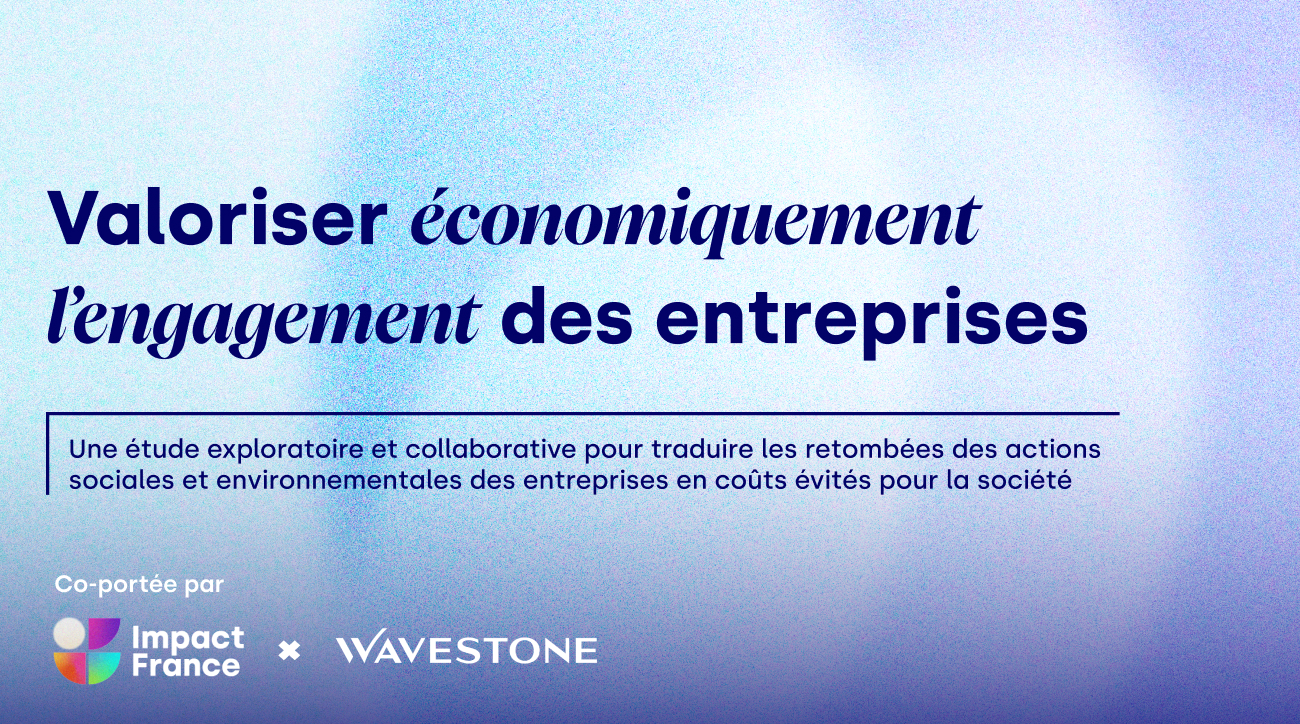Will impact start-ups be the unicorns of tomorrow?


While consumers are increasingly attentive to their purchases, while workers and job seekers identify corporate commitment as a priority criterion, while the government's objective is to accelerate the ecological and social transition, there are too few Impact companies among the French unicorns; the impact economy is not succeeding in taking the place that it should.
Faced with this observation, the Impact France Movement and the Boston Consulting Group have combined their expertise to carry out the first major study on the impact economy and on how to scale it up to see the next Impact Unicorns emerge. Conducted with Ipsos, this study questioned impact companies to work on identifying their uniqueness in an economic landscape where engagement models are multiplying.

The results of this study, presented exclusively at ChangeNOW, provide a clear action plan for the Impact Economy.
A central point to remember is that the Impact economy will not be valued and recognised until the way in which the value created by a company is viewed changes.
The first step is to define the impact company. While the term impact has become more widely used in recent months, a clear definition is needed to clarify the levels of commitment of companies. The work of the Impact France Movement and the Boston Consulting Group has led to the following definition:
Impact companies are companies that set out to address a social or environmental issue and that align their entire organisation with this objective.
In concrete terms, this means that in addition to dedicating their activity to solving a social and/or environmental issue, they attach importance to limiting their negative effects on the environment and people, to sharing the value generated within their company, and to sharing power with all their stakeholders so that positive impact remains the core concern of their governance.

- One in three impact companies does more than 20% of its business with large groups;
- The need to reach a critical size or the cumbersome purchasing or partnership processes;
- Only 19% of impact businesses manage to raise external funding (from venture capital or investment funds) compared to 46% of traditional start-ups;
- For 1 out of 2 impact businesses, public support for social and/or ecological innovation is perceived as insufficient, particularly in terms of taxation.
These elements plead for a different definition of impact unicorns, one that takes into account the social and environmental value created and therefore the costs that their activity avoids for society (for example: costs saved by getting an unemployed person back to work, avoiding the emission of tons of CO2 etc.). This new method of valuation would facilitate access to financing for these companies and their development.
At ChangeNOW, the results of this study and a round-table discussion with Clara Chappaz (La French Tech), Thé Scubla (Each One), Yann Bucaille (Café Joyeux), Jean Moreau (Phénix) and Paola Fabiani (MEDEF - COMEX40) further presented the vision of the Unicorn at Impact
From these discussions and the study, three possible solutions emerged to enable the Unicorn Impact to emerge:
Methodology of the study.
This study is based on the results of a survey conducted by IPSOS among 223 impact companies between 30 March and 19 April 2022. This quantitative questionnaire was complemented by two workshops with impact entrepreneurs and funders on the notion of impact unicorns.
Click here to access the results of the study.

